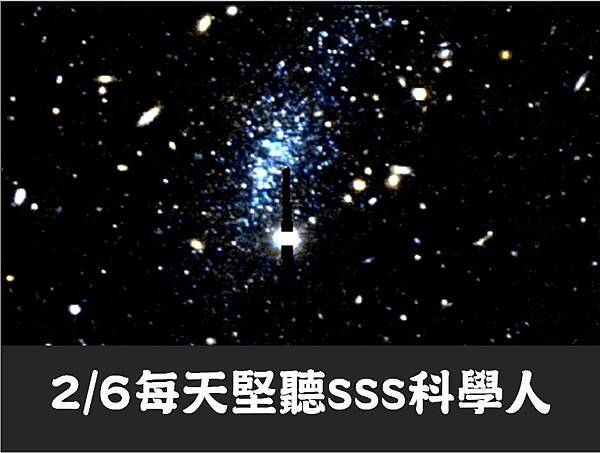 今日主題:Little Galaxy Keeps Churning Out Stars 來自氣體的星星
今日主題:Little Galaxy Keeps Churning Out Stars 來自氣體的星星
 洪欣老師推薦:托福聽力最好的課外教材:60-Second Science
洪欣老師推薦:托福聽力最好的課外教材:60-Second Science 康康精選托福會考的主題,堅持每天精聽一定會進步的哦!!
康康精選托福會考的主題,堅持每天精聽一定會進步的哦!!
 建議方法:
建議方法:
1. 先聽兩三遍 (不看文稿)
2. 再一句一句聽寫 (每句都要聽寫數遍,直到寫出85%以上的字)
3. 最後check文稿,看哪聽不出來,單字沒背過,還是發音不熟。
4. 堅持天天聽,就能每天進步哦。
 MP3音檔 (按右鍵可下載聽):喜歡的同學,幫忙推或按讚哦~~
MP3音檔 (按右鍵可下載聽):喜歡的同學,幫忙推或按讚哦~~
http://online1.tingclass.net/voaspe/…/20151130sa_science.mp3
 只有音檔怎夠,聽不懂地方,不用怕,康康幫你準備好中英文稿了:
只有音檔怎夠,聽不懂地方,不用怕,康康幫你準備好中英文稿了:
 中英文稿:
中英文稿:
Our galactic home, the Milky Way, is big. Most galaxies are far smaller. And it’s not easy being one of those little galaxies—a big galaxy’s gravity can rob their gas. And gas creates new stars, so losing gas spells the end of star-making. That's what happened to nearly all the small galaxies orbiting the Milky Way.
我們銀河上的家,銀河,是很大的。大部分銀河系星系都是超小的呢。而且要成為那些小星系中的一員還挺不容易——一個大星系的重力能夠搶奪它們的氣體層。而氣體能夠創造恒星,所以氣體流失就意味著無法製造恒星了。這就是所有圍繞著銀河系的那些小星系上面正在上演的悲劇。
But a small galaxy can still succeed. Take the example of Leo P. Discovered in 2013, the galaxy Leo P lies some 5.3 million light-years from Earth. And it contains only about a hundred-thousandths as many stars as the Milky Way. But it’s thriving nevertheless.
但是小星系還是有機會逃脫的。比如2013年發現的這顆Leo P 這顆星系Leo P 坐落在距離地球五百三十萬光年的距離。並且它只含有銀河系所含恒星數量的千分之一百。但它現在依然欣欣向榮的存在著。
So what’s Leo P's secret for success? Pretty simple: steer clear of gas-grabbing big galaxies. Leo P still has lots of gas. In fact, Leo P's gas outweighs its stars. Astronomers used the Hubble Space Telescope to study the small galaxy and published their findings recently in The Astrophysical Journal.
那麼它能倖存的奧秘呢?十分簡單:遠離吸氣的大星系。Leo P 現在還有不少氣體。實際上,Leo P 的氣體比它所含恒星還多。天文學家們利用哈勃天文望遠鏡研究了這些小星系並且已經將他們的研究發現發表在《天文物理雜誌上》。
All that gas means that Leo P can keep making new stars. So the diminutive galaxy has a bright future, as long as it keeps obeying the number one rule of survival: don’t let any behemoths siphon off your gas.
有這些氣體就意味著Leo P 能不斷創造新恒星。所以這個小型星系無疑有光明的未來,只要它保持遵守生存法則第一條:堅決抵抗虹吸氣體的侵略行為。



 留言列表
留言列表
